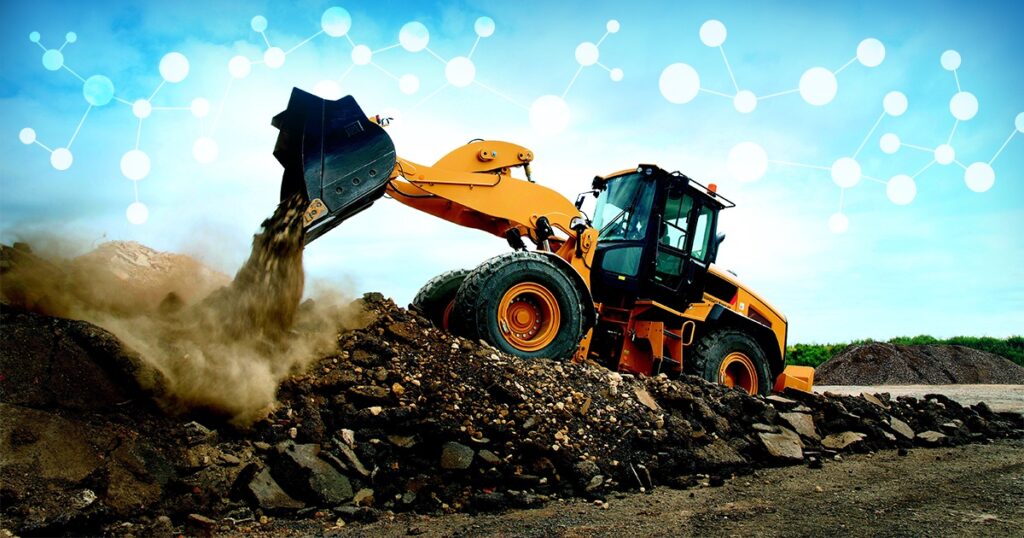
Manufacturers are working faster to switch from diesel engines to both battery-electric power and hydrogen fuel cell technology in their construction and heavy equipment. Major manufacturers invest in energy alternatives because national governments want new pollution standards while companies seek environmentally friendly options. Battery-operated heavy machines have earned success but hydrogen equipment is becoming more popular because it takes quick to refuel and stores strong power. The question remains: Will hydrogen-powered heavy machinery outpace electricity in the future?
Why the Shift Toward Alternative Fuels?
The construction sector needs cleaner forms of energy more than ever before. Many industries depend on heavier machinery that uses diesel engines to produce most of their harmful carbon dioxide pollution. Global governments now enforce strong emission standards and provide money benefits to drive companies toward emission-free energy solutions. Both the European Union’s Green Deal and the United States Inflation Reduction Act offer money to companies that put their resources into hydrogen and electric-powered equipment.
Companies must switch to sustainable business methods despite facing numerous demands. Major equipment manufacturers are expending large sums on research and design to build machines that comply with environmental standards while performing at their best. The battery-electric technology industry has achieved success in light and medium-duty applications but heavy-duty construction machines such as mining trucks demand longer runtimes and more powerful energy which leads experts to view hydrogen as a potential answer.
How Hydrogen-Powered Heavy Machinery Works
Heavy equipment runs on electricity produced by hydrogen fuel cells which consume hydrogen and oxygen. The fuel cells use hydrogen and oxygen to make electricity for the machinery which creates water vapor as its only exhaust. Hydrogen fuel cells function effectively and give power equipment an edge over battery-electric systems because of their power storage capability and fast refueling options.
Hydrogen helps machines run longer between refills because the gas or liquid form makes storage easy. Refueling hydrogen machinery takes only a few minutes while recharging battery equipment needs hours, a critical advantage in industries where uptime and productivity are essential.
How Electric Heavy Machinery Works
Electric heavy equipment needs lithium-ion or solid-state batteries to power its drive system. These tools use electric motors to replace internal combustion engines and create a quieter more eco-friendly solution to standard diesel equipment.
Battery-electric machinery offers a basic design that runs efficiently. Electric motors save energy and withstand wear better than internal combustion engines because they need fewer moving components. Additionally, the widespread development of electric vehicle (EV) charging infrastructure is making it easier for companies to integrate battery-powered machinery into their operations. Electric machines still have important issues with charging times, low operating distance, and high weight which stop their full use in heavy work settings.
Comparing Hydrogen vs. Electric in Heavy Machinery
Several elements must be assessed during a comparison between hydrogen and electric machines.
Energy Efficiency and Power Output: Electric motors use energy better than hydrogen fuel cells when turning it into movement. The high amount of energy in hydrogen makes the fuel great for large power-hungry operations.
Refueling vs. Charging Times: Hydrogen engines fill up quickly but electric machines need several hours to recharge which reduces their operational time.
Infrastructure Availability: Electric car charging stations are more common than hydrogen fueling stations. Local and state authorities plus business owners now invest heavily in hydrogen infrastructure across Europe, Japan, and North America.
Cost Considerations: Battery technology costs less and works better today since producing and delivering hydrogen is still more expensive than battery power. As governments and industries keep adding renewable energy capacity, the expenses of producing green hydrogen will go down.
Current Industry Adoption and Real-world Applications
Leading equipment manufacturers are making financial investments in hydrogen-powered equipment. JCB has displayed a hydrogen-fueled backhoe loader and Hyundai plus Komatsu are making hydrogen-powered excavators. Caterpillar Construction Equipment is assessing how hydrogen fuel cell systems can power mining trucks while Liebherr works with hybrid power systems that mix both battery-electric and hydrogen platforms.
The market has already accepted electric-driven heavy machine operations. Volvo Construction Equipment now sells electric excavators and wheel loaders while Komatsu offers electric mining trucks to different locations around the world. Both developed technologies remain at the beginning of their wide adoption path. Businesses conduct testing of hydrogen and electrical machinery in their operational environments to evaluate their practical effectiveness.
Challenges Facing Hydrogen-Powered Heavy Equipment
Hydrogen presents excellent opportunities but needs various obstacles resolved to take control of heavy machinery production. The high costs of making and distributing hydrogen prevent getting this energy source from renewable instead of fossil fuel sources. Green hydrogen production from renewable power sources represents the essential step needed to support hydrogen as a sustainable fuel alternative.
Infrastructure is another major obstacle. Because of limited hydrogen refueling station availability today, these stations cannot support large applications in construction and mining operations. Hydrogen presents safety risks because it combusts easily which demands strict storage and handling procedures.
Will Hydrogen Overtake Electric?
The success of hydrogen for heavy machinery depends on better ways to produce store and deliver this power source. With reduced production costs and better infrastructure setup hydrogen energy may prove better than battery-electric energy for heavy equipment applications.
In the coming years, battery-electric and hydrogen-powered equipment may run together as the most realistic option. Hydrogen serves as the best option for big mining operations and heavy-duty transportation work because it performs better than electric power in these areas. The competition between hydrogen and electric technology will continue to evolve, and the industry will ultimately embrace the most cost-effective, efficient, and scalable solution. Production using hydrogen may not fully replace electrical power yet this change is already ending the diesel era for heavy machinery.


